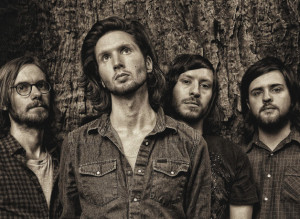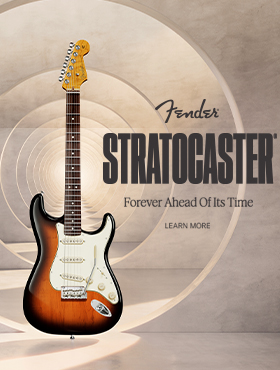LEADER CHEETAH
June 2011. By Peter Hodgson
 South Australia’s Leader Cheetah are about to release Lotus Skies, the follow-up to their 2009 debut, The Sunspot Letters. Recorded in Sydney with producer Scott Horscroft (The Panics, Little Red, The Sleepy Jackson), the album highlights the band’s songwriting with sunny, honest production and the occasional wash of colourful orchestration. The album’s lyrical themes tap into raw emotional territory – singer and guitarist Dan Crannich says the songs were written at a time when he felt something was out of whack emotionally and physically – but musically there’s a distinct optimistic bent. “People need to feel emotions, to connect with them through movies and songs and art in general,’’ Dan says. “For a songwriter, you have this thing inside you where you don’t feel right if you aren’t being creative.” Crannitch and his drummer brother Joel grew up in the Adelaide Hills. That’s where they still rehearse, with guitarist Dan Pash and bassist Mark Harding, and their music feels a little more sun-kissed, natural and earthy than metropolis-dwellers might be able to conjure. “A lot of bands seem to come from out-of-the-way places, somewhere a bit off the track,’’ Dan says. “You grow up with no idea of scenes or caring about what’s hip. It’s all about finding your own taste in music, creating your own thing. You’re trying to be true to who you are.’’
South Australia’s Leader Cheetah are about to release Lotus Skies, the follow-up to their 2009 debut, The Sunspot Letters. Recorded in Sydney with producer Scott Horscroft (The Panics, Little Red, The Sleepy Jackson), the album highlights the band’s songwriting with sunny, honest production and the occasional wash of colourful orchestration. The album’s lyrical themes tap into raw emotional territory – singer and guitarist Dan Crannich says the songs were written at a time when he felt something was out of whack emotionally and physically – but musically there’s a distinct optimistic bent. “People need to feel emotions, to connect with them through movies and songs and art in general,’’ Dan says. “For a songwriter, you have this thing inside you where you don’t feel right if you aren’t being creative.” Crannitch and his drummer brother Joel grew up in the Adelaide Hills. That’s where they still rehearse, with guitarist Dan Pash and bassist Mark Harding, and their music feels a little more sun-kissed, natural and earthy than metropolis-dwellers might be able to conjure. “A lot of bands seem to come from out-of-the-way places, somewhere a bit off the track,’’ Dan says. “You grow up with no idea of scenes or caring about what’s hip. It’s all about finding your own taste in music, creating your own thing. You’re trying to be true to who you are.’’
You grew up in the Adelaide Hills. How did your hometown influence your music?
It was just one of those things. I guess certain musicians and music seep into your subconscious as you’re growing up, but with songwriting I just try to be as honest as possible. I guess that as with any creative stuff, you do seep in influences as you grow older and your tastes develop, and you clothe your art with a certain aesthetic, but I think it was the perfect place to grow up. To do your own thing, to write music, to play guitar, to not be worried about any kind of scenes. It was just about music. The love of it, the magic of it… tapping into that part of your subconscious. I think those sorts of things are true for your whole life as far as songwriting goes. It’s all about maintaining that thing that you have when you first start writing songs, just allowing yourself to be honest and open. Put the antennas out and hope that the good stuff’s out there. It’s like dreaming or something: you’ve just got to open up and let it happen.
Do you have any kind of routine for letting that happen? Some musicians get into meditation, some need to work out before they riff out…
I’ve started trying to meditate a little bit. It’s my first time living by myself. I just came out of a long-term relationship and I’ve got a lot of things going on in my life on top of that. So I’ve actually be trying to do things like lighting some candles and doing a bit of meditation, just to try and clear away a little bit of the psychic baggage that’s hanging around. But I find music, especially performing and writing it, being creative, just really helps to stay in that positive mood. It does shed weight and feelings that are hanging around you. It’s a very renewing kind of thing. But the meditation, not before I write, I don’t. It’s more just picking up the guitar. You kind of know when you’re in a mood where things are going to come. Sometimes you surprise yourself – sometimes you’re not at all even really thinking about music, and you pick up the guitar and stuff starts happening, but quite often it’s that time when you sit down by yourself and you’ve just got a feeling that if you do it now, something’s gonna happen! I don’t know whether it’s something to do with the planets or whatever, but I definitely think there’s a feeling that you have when the good stuff is going to come. That’s why I’ve never felt a huge amount of ego attached to my songwriting. You definitely do get better at writing songs, but that’s just because you get better at honing in. The most integral part of a great song is that initial flash, that initial idea, that initial melody. Whatever it may be. For the kind of songs I write it’s melody. For a different style of music it may be a rhythm. You definitely get better at knowing how to arrange and trim the fat, and build it up, but I think that initial thing is always kind of the same.
Speaking of building it up, you have a lot of interesting arrangement ideas, such as the lap steel on “Crawling Up A Landslide.”
We got a guy in called Jason Walker. He heard the song once and started playing along to it. We recorded two or three takes and that was it, next song. He’s definitely a bit of a genius. But I just think that when you’ve got a really strong melody you can kinda do anything you want to it. You can dress it up, you can dress it down. I’ve always thought that initial talent that great songwriters have, whether it’s Kurt Cobain, Bob Marley, John Lennon, Woody Guthrie – that initial thing was just melody and being able to create songs. It’s that same bit of your soul or psyche. And how you dress that up can change as you get older and your tastes develop, but ultimately the same song could be done in a kind of a punk way. You could take a Beatles song and play it in a Bossa Nova way or a Ramones way and it’s still going to be great. “Crawling Up A Landslide” wasn’t first envisioned as a country-ish number. At first it was a big rocker, or a pop/rock indie thing. We felt it was alright, but then Joel, my brother, started giving it the old Nashville backbeat, and next thing you know we were all smiling and everything fell into place perfectly. When something is crying out to be done in that style, you just have to let it have its way! Putting the lap steel on that song is just perfect. Especially with headphones on – it has that real ear candy kind of feel. Lap steel gets your heart strings on such a different level in such a different way to any other instrument.
It’s such an inviting sound. It’s almost like the rolled-off treble tone a lot of lap steel players use makes you want to get closer to the music.
Treble is always going to sound more bitey, and lap steel by nature is a pretty bitey-sounding, twangy instrument, and that’s why you roll off a lot of that top end and put that classic reverb on it to soften it and get rid of any kind of harshness, and all of a sudden you have this gorgeous, three-dimensional, beautiful, textural sound. It’s like a big warm hug!
What kind of guitar gear did you use on the album?
I think it was mainly – I must apologise, I’m not really a huge gear guy… I’m a bit useless with models and that kind of stuff – but it was old Fender amps and old Vox amps. I think it was a Vox AC30 and a Fender Twin Reverb. Pashie – the guitar player Dan Pash – uses this really great old 1970s Music Man head. It just sounds ****ing great. We’ve tried other amps when we tour, like little Fenders and stuff like that, but it just doesn’t work. I generally play half acoustic and half really clean Strat with just a little bit of gain, and that tends to sound really good through a nice clean amp. But when Pashie’s playing through this little combo with his pedals, it never sounds the same as when he’s got the Music Man on a quad box. It’s just really the sound. The way my vocal and his guitar interplay live, it just seems to work so well and they don’t get in the way. His guitar can be as loud as you want but whatever it is that the Music Man does, it just delivers. He uses a classic Rickenbacker like the guys from the Byrds. It just looks like a classic Rickenbacker. It’s just a magic combo.
Gear up to the 70s seemed so simple and so easy to get a good sound out of.
You just want to plug in and go. You need techie people as well. I’m a little bit useless. I can get a good tone out of an amp but I’m not one of those people who is crazily into it. But I love my acoustic. I use a nice old Martin, a 000-15 Auditorium. It’s a really lovely guitar, and I use that all the time live. In the studio I used it a lot. I also used a nice Gibson Songbird. I think it was from the 50s or 60s. Also this nice little Maton acoustic. I’ve got a ’76 Fender Stratocaster which I used on a few of the tracks. And we had a nice old Gibson SG and some other nice old guitars in there. We had another Fender – it might have been a Jaguar, I can’t remember. We were lucky to have some pretty awesome gear at our disposal.


